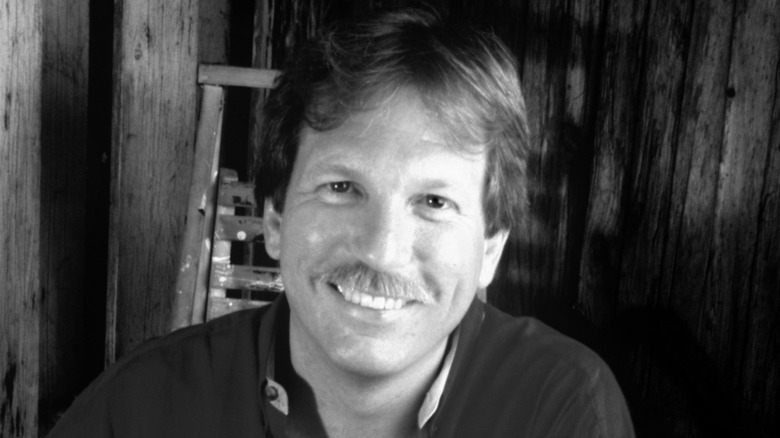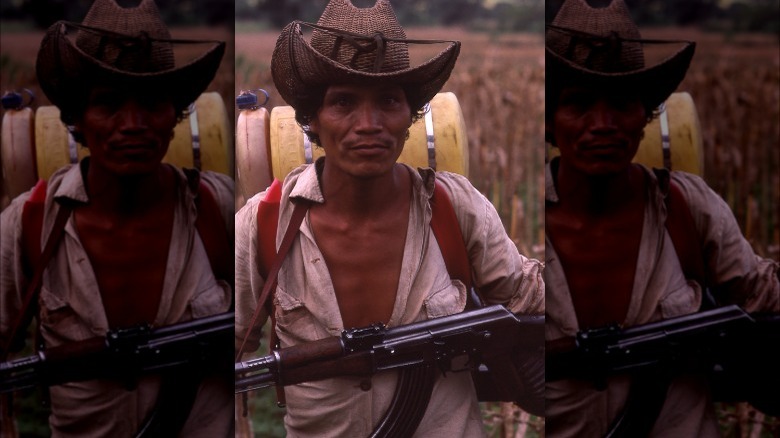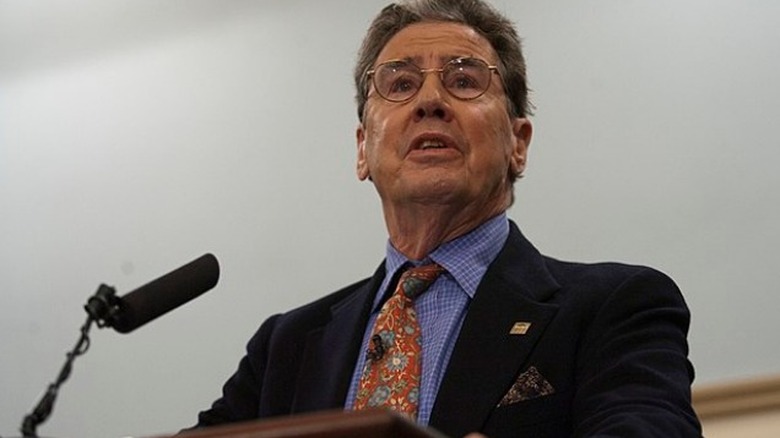The Tragic 2004 Death Of Investigative Journalist, Gary Webb
In 2004, Pulitzer Prize-winning journalist Gary Webb was found dead from an apparent suicide, as Democracy Now! reports. At that time, Webb (pictured) was best known for the controversial three-part CIA 1996 expose he wrote the San Jose Mercury News called "Dark Alliance: The Story Behind the Crack Explosion." In it, Webb alleged the Central Intelligence Agency (CIA) had helped support the spread of crack cocaine on the streets of Los Angeles and other major U.S. cities. That support came via the agency's funding of Nicaraguan Contra rebels fighting the socialist Sandinista government of Nicaragua. In turn, those Contra forces smuggled and sold crack cocaine in the U.S., raising further funds for their counter-revolutionary effort, Webb alleged.
With Webb's piece, the credibility of the American intelligence community was badly damaged, particularly among Black Americans for whom crack cocaine's use was particularly widespread. So much so, crack addiction issues and related death among Black Americans were referred to as an epidemic at that time (per Britannica).
Webb's work had also scooped much larger media outlets like The New York Times and the Los Angeles Times and as a result, it drew scrutiny from those news organizations — or was there something much more sinister at work? Meanwhile, the story elicited strong denial from the CIA, according to The Intercept. Was Webb killed in 2004 for the truths he exposed, or instead, were there problems in his reporting pointed out by other legacy media outlets that all combined sent his mental health into decline, leading to a tragic end?
Webb later admitted there was no hard proof
According to the PBS news program Frontline, Gary Webb himself later said there was no solid proof that the CIA had a direct connection to the trafficking of crack cocaine into America's major cities. American interest in the Sandinista-Contra conflict was to stem the perceived rise of Communism in Central and South America. Journalistic problems aside, Webb's three-part series did lay out a compelling case that, if nothing else, there was cause for suspicion over the link between American intelligence agencies, the flurry of crack cocaine, and subsequent addiction and death in Los Angeles in particular, and the Nicaraguan Contra rebels.
On the emerging alternative internet media landscape and with the rise of talk radio, Webb's story took root. Some speculate the CIA pulled strings behind the scenes to encourage The NY and LA Times and other voices in mainstream media to point out faults in Webb's series, as The Intercept writes. Among other problems, he never explicitly wrote the CIA knowingly trafficked crack cocaine, or knew of the Contra rebels' drug smuggling activity. Webb also never reached out to the CIA for comment — a standard journalistic practice.
Close reading exposed a raft of other problems in Webb's details. Still, as The Intercept points out, Associated Press reporters made similar claims about a decade before Webb. Around that same time, a senate subcommittee was formed, led by Massachusetts Senator John Kerry. The U.S. government likely knew of the Contra drug smuggling operation, among other committee findings.
An independent investigation reached its own conclusion
As Frontline reports, an independent investigation was launched in the aftermath of Webb's piece. It concluded in a two-part Hitz report, so-called after CIA Inspector General Frederick Hitz (pictured) who led the inquiry at the senate, the CIA had no knowledge of Contra-based drug smuggling. The American agency, though, did seem to turn blind eye to evidence involving drug dealings, according to the investigation's findings.
While there was no proof to support Webb's assertions, plausible deniability on the CIA's part was maintained — regardless of their foreknowledge of Contra activities. So where did that leave Webb? All combined, problems exposed in media coverage of Webb's piece turned the tide of opinion away from Webb and back toward the CIA.
As The Intercept writes, the media response to Webb's piece — orchestrated or not by the intelligence agency — had journalistic issues of its own. Some reporters involved in the anti-Webb backlash regretted their decision. Faults aside, Webb's key points were sound.
Speaking with The Intercept, Nick Schou, who was at The Los Angeles Times when Webb's piece was released, said, "As much as it's true that [Webb] suffered from a clinical depression for years and years ... [I]t's impossible to view what happened to him without understanding the death of his career as a result of this story ... It was really the central defining event of his career and of his life. Once you take away a journalist's credibility, that's all they have," Schou said.


